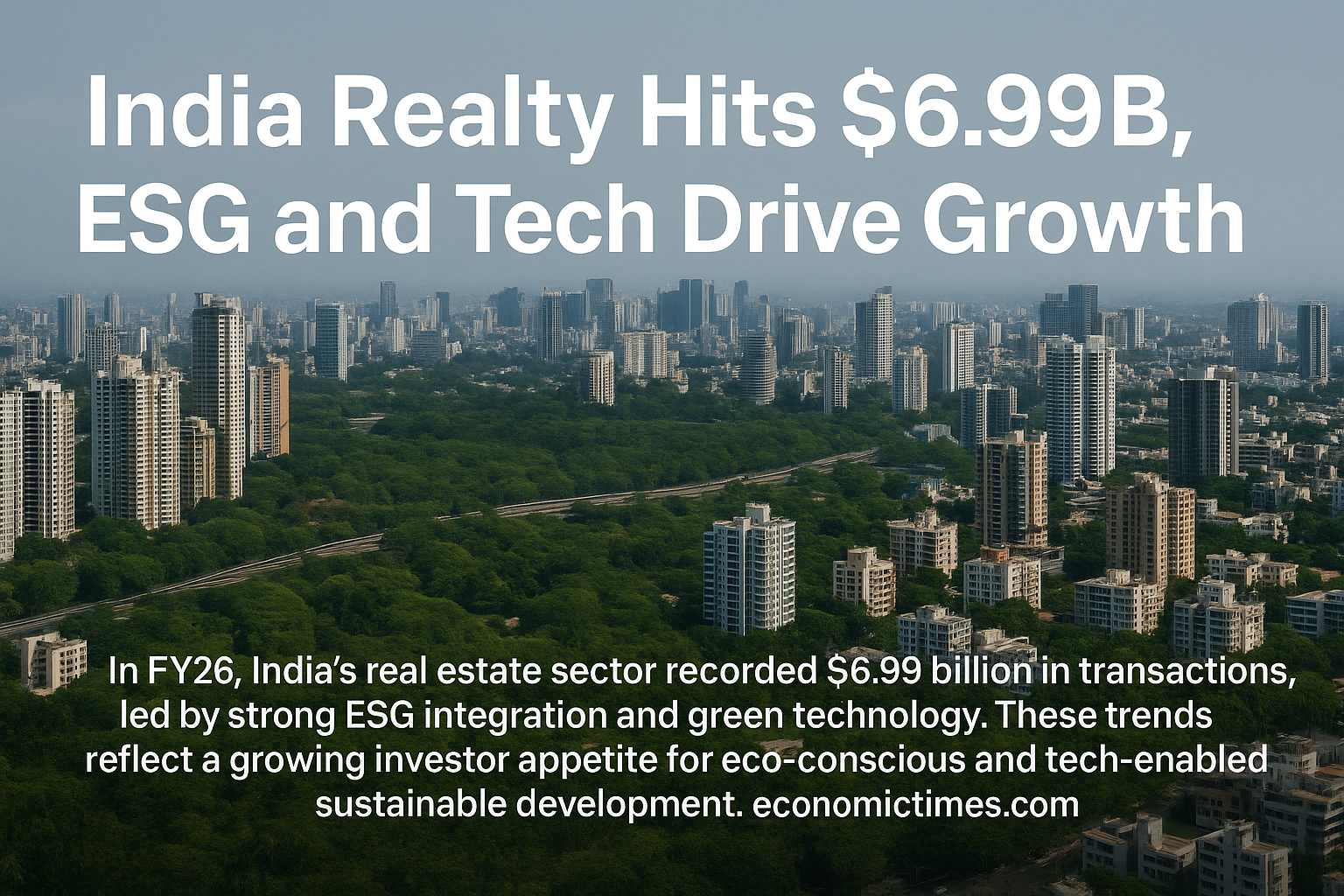India’s real estate sector has achieved a significant milestone in FY26, with transactions reaching an impressive $6.99 billion. This remarkable performance highlights the country’s evolving property market, where sustainability and technology are no longer optional add-ons but central pillars of growth. The figures, reported by The Economic Times, demonstrate how environmental, social, and governance (ESG) principles, combined with green technology, are reshaping the sector and driving strong investor interest.
ESG Integration: The New Standard for Indian Real Estate
In recent years, ESG criteria have emerged as essential benchmarks for investors, developers, and buyers alike. No longer is a building’s value determined solely by its location or size — factors such as carbon footprint, energy efficiency, water conservation, and community impact are becoming equally critical.
Indian developers have stepped up their game, integrating ESG principles at every stage of a project’s lifecycle. From green building certifications like IGBC and LEED to on-site renewable energy generation and sustainable construction materials, ESG compliance has become synonymous with premium real estate offerings. These efforts are not just about meeting regulatory expectations; they’re about aligning with a global shift toward responsible capitalism and future-proofing investments.
Technology: The Engine Behind Sustainable Development
Beyond ESG, the adoption of advanced technologies is accelerating India’s property market transformation. Smart buildings equipped with IoT-enabled energy management systems, automated water recycling, AI-powered security, and predictive maintenance are becoming commonplace in urban centers like Mumbai, Bengaluru, and Hyderabad.
Technology is also enabling better urban planning through data analytics and digital twin models, helping cities grow more sustainably. Green roofs, vertical gardens, and rainwater harvesting systems are now standard features in many commercial and residential developments, showcasing how innovation and ecology can harmoniously coexist.
Investor Appetite for Eco-Conscious Growth
The $6.99 billion figure reflects a broader trend — the growing investor appetite for sustainable, tech-driven developments. Domestic and international investors are increasingly favoring assets that meet stringent ESG standards and leverage cutting-edge technology. These assets not only offer superior long-term returns but also align with the values of a younger, more environmentally aware generation of buyers and renters.
Furthermore, government initiatives such as Smart Cities Mission, AMRUT, and policies promoting green housing finance are creating an enabling environment for ESG and tech adoption in real estate. These policy frameworks provide incentives and guidance that encourage developers to innovate while staying sustainable.
Challenges and Opportunities
While the sector’s progress is commendable, challenges remain. The upfront cost of green technologies, the need for skilled workforce in ESG implementation, and balancing rapid urbanization with ecological preservation continue to test stakeholders. However, these challenges also represent opportunities — for startups offering affordable green solutions, for institutions providing ESG education, and for policymakers crafting frameworks that reward sustainability.
India’s real estate sector stands at the cusp of a transformative era. The FY26 transaction figures are not just numbers; they are a testament to how a traditionally brick-and-mortar industry is embracing the future — one that is greener, smarter, and more responsible.




